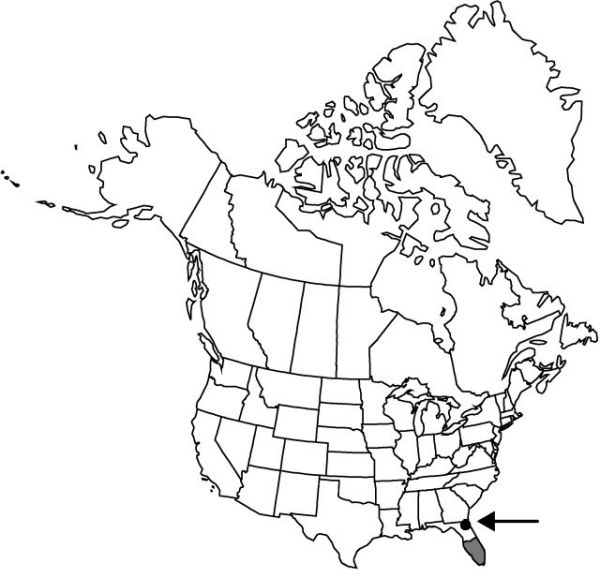Hymenocallis palmeri
Proc. Amer. Acad. Arts 14: 301. 1879.
Bulb nonrhizomatous, ovoid, 2.5–4 × 1.5–3.5(–5) cm; basal plate 1–3.5 cm; neck 3–7 cm; tunic grayish brown. Leaves deciduous, 2–6, erect, 1.5–4(–5–6.5) dm × 4–10 mm, coriaceous; blade bluish green, linear, channeled, margins hyaline, apex acute, glaucous. Scape 1.8–4.5(–6) dm, suborbiculate, glaucous; scape bracts 2, not enclosing flower bud, 4–6 cm × 4–7 mm; subtending floral bracts 1–2, 3.7–5 cm × 3–5 mm. Flowers 1, rarely 2, then opening sequentially, faintly fragrant; perianth tube green, 7.5–12 cm; tepals ascending, yellow-green to pale green, linear, 7.5–12.5 cm × 3–7 mm (unfolded); corona white with faint green eye, funnelform, margins with some gradual spreading in time, shortly tubulose proximally, 2.5–3.5(–5) × 3–5 cm, margins between free portions of filaments irregularly dentate, with some filiform projections; free portions of filaments inserted on flat sinal base, erect, white, 2.5–4 cm; anthers 1.2–2 cm, pollen deep yellow; ovary oblong to slightly pyriform, 1.4–2.2 cm × 6–12 mm, ovules (3–)5–8 per locule; style green in distal 1/2, fading to white proximally, 13–20 cm. Capsules ellipsoid, 3.5–4 × ca. 2.5 cm. Seeds obovoid, 1.5–2 × 1–1.4 cm. 2n = 42, 46, 48.
Phenology: Flowering late spring–summer.
Habitat: Cypress swamps, wet prairies, open pine flatwoods, wet roadsides
Elevation: 0 m
Discussion
Hymenocallis palmeri is most closely allied to H. henryae, having similar leaf and floral characteristics, but it is distinguished by its linear leaves, single flower, and perianth tube that is often decidedly longer than the tepals (G. L. Smith and W. S. Flory 1990).
Selected References
None.
